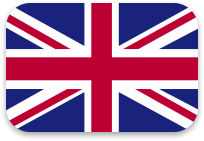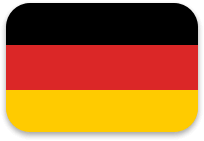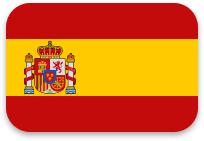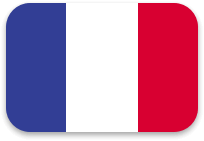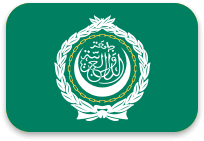Gratitude has a positive connotation recognized across all cultures. For that reason, learning to say "thank you" in different languages will definitely leave a positive impression and prompt smiles. Expressing appreciation in the local language can help you connect with native speakers. Moreover, saying or hearing a genuine "thank you" releases dopamine and serotonin in the brain - contributing to improved mood and well-being.
Are you ready to impress friends and family on your next vacation abroad?
Tips for Expressing Gratitude in Different Languages
A simple "thank you" can make all the difference when expressing gratitude in a foreign language. It is plain and straightforward enough to get your message across and makes everyone feel better.
Typical contexts for expressing gratitude include receiving a thoughtful gift or a favor or showing appreciation for an act of kindness. It's a sign of politeness, highly valued in all cultures. Keep in mind that there may be differences in registers across various cultures. So, in some situations, you will want to use a polite address for a "thank you" message, while friendly contexts allow for a more casual tone.
If you want to say "thank you" in Mandarin Chinese, French, Spanish or explore other languages, FunEasyLearn has you covered. And the language-learning app is not just for English speakers! With 34 courses from 62 native languages, FunEasyLearn makes learning accessible to millions of learners worldwide!
Arabic - شكراً (Shukran)
Expressing gratitude is highly appreciated in Arabic culture. It's also the custom to reply with compliments and warm wishes when someone thanks you. شكراً (Shukran) is the universal way to thank anyone in most Arab countries and the safest option to use across all dialects.
| Arabic | English |
|---|---|
| شكراً (shukran) | Thank you |
| أشكرك من أعماق قلبي(ashkuruka min a'maq qalbi) | Heartfelt thanks |
| متشك (mutashakk) | Thank you (colloquial) |
| ألف شكر(alf shukr ) | A thousand thanks |
Bulgarian - Благодаря (Blagodarya)
The French word "merci," translated as "thanks," is often used by Bulgarians in casual situations. A few examples are listed in the table below.
| Bulgarian | English |
|---|---|
| Благодаря (blago-darya) | Thank you |
| Благодаря много (blago-darya mnogo) | Thank you very much |
| Благодарности (blago-darnosti) | Gratitude |
| Хиляди благодарности (khilyadi blago-darnosti) | Thousands of thanks |
Some of the most common replies to "Thank you" are "Няма защо" (nyama zashto), "There is no reason (to thank me)," and "Няма проблем" (nyama problem): "No problem."
Chinese (Traditional) - 謝謝 (Xièxiè)
Words, phrases, and expressions expressing gratitude are deeply rooted in Chinese culture. The custom is to use kind words, voicing the deepest thanks as a reply to a kind act. Learn a few ways to say "thank you" in Chinese for the right situation.
| Chinese (Traditional) | English |
|---|---|
| 謝謝 (xie xie) | Thank you |
| 感謝 (gan xie) | Sincerely thank you |
| 多謝 (duo xie) | Thanks a lot |
| 千恩萬謝 (qian en wan xie) | Thousands of thanks |
Croatian - Hvala
A Croatian proverb is Lijepa riječ sva vrata otvara ("A nice word opens all doors"). That underlines the importance of minding your Ps and Qs when interacting with Croats. It's also essential to say "no" without offending anyone. Politely saying "ne hvala," (no, thank you) should be enough to decline an offer respectfully.
| Croatian | English |
|---|---|
| Hvala | Thank you |
| Puno hvala | Many thanks |
| Hvala puno | Thanks a lot |
| Hvala najljepša (hva-la nai-lyep-sha) | Thank you very much (formal) |
Czech - Děkuji
One should be mindful of the context to say "thank you" in Czech. You can start with two popular words - "Děkuji" and "Děkujeme." The first one is preferred in one-on-one conversations and casual situations. The second one is best when addressing a larger audience, during presentations, and in formal settings.
| Czech | English |
|---|---|
| Děkuji (deku-yee) | Thank you |
| Děkujeme (dekyu-ye-me) | Thank you (formal) |
| Děkuji moc (deku-yee mots) | Thank you very much |
| Díky (di-kee) | Thanks |
| Díky moc (di-kee mots) | Thanks a lot |
Danish - Tak

The main word to remember in Danish is "Tak." It can be easily combined with other words to fit a range of contexts. "Tak for mad" is used to say "thank you for the meal," while "Tak for i dag" says "Thank you for today," ideal after a meeting. To respond, use "Selv tak" (You're welcome) or "Det var så lidt" (It was so little).
| Danish | English |
|---|---|
| Tak (tak) | Thank you |
| Mange tak (man-uh tak) | Many thanks |
| Tusind tak (too-sin tak) | A thousand thanks |
| Tak skal du have (tak skal doo have) | Thank you very much (polite) |
| Tak af hele mit hjerte (tak af heh-luh mit yer-tuh) | Thanks from my whole heart |
| Tak for hjælpen (tak for yel-pen) | Thanks for the help |
Dutch - Dank je wel
The Dutch value sincerity, so it's essential to be honest when saying "Thank you." Although most people in the Netherlands are relatively informal when expressing gratitude, they highly appreciate politeness. So, thank the barista at a coffee place and your co-workers for small favors, but don't overdo it.
| Dutch | English |
|---|---|
| Dank je wel (dank yuh wel) | Thank you |
| Dank u wel (dank oo wel) | Thank you (formal) |
| Bedankt (buh-dankt) | Thanks |
| Duizend dank (dow-zuhnd dank) | A thousand thanks |
Finnish - Kiitos
The word "Kiitos" is everything you need to express gratitude in Finnish. It can form more complex expressions to fit various situations. For instance, "Kiitos harkinnastasi" (Thank you for your consideration) is appropriate for formal situations, such as applying for a new job.
| Finnish | English |
|---|---|
| Kiitos (kee-tos) | Thank you |
| Paljon kiitoksia (pahl-yon kee-tok-syah) | Many thanks |
| Kiitos paljon (kee-tos pahl-yon) | Thank you very much |
| Kiitos oikein paljon (kee-tos or-kay-n pahl-yon) | Thank you very, very much |
| Kiitos harkinnastasi (kee-tos har-kee-nahs-tah-see) | Thank you for your consideration |
Speak a new language with confidence!
Build fluency faster with FunEasyLearn — just 10 minutes a day is enough to make real progress.
French - Merci
The universal "Merci" is a common borrowing used to express gratitude in many languages. In French, it is used in both formal and informal situations. There are many variations to add more depth to a simple "thank you." One example is "merci beaucoup" (thank you very much).
| French | English |
|---|---|
| Merci (mehr-see) | Thank you |
| Merci beaucoup (mehr-see boh-koo) | Thank you very much |
| Merci mille fois (mehr-see meel fwa) | Thanks a thousand times |
| Merci de tout cœur (mehr-see duh too kur) | Thank you from the bottom of my heart |
| Je vous remercie (zhuh voo ruh-mehr-see) | I thank you (formal) |
| Merci bien (mehr-see byan) | Thanks very much |
German - Danke
When in Germany, a simple "danke" is enough for everyday situations. If you speak with someone older or of a higher status, you could use the formal "Ich danke Ihnen."
| German | English |
|---|---|
| Danke (dah-n-kuh) | Thank you |
| Vielen Dank (fee-len dahnk) | Many thanks |
| Danke schön (dah-n-kuh shurn) | Thank you very much |
| Tausend Dank (tous-end dahnk) | A thousand thanks |
| Ich danke dir (ikh dahn-kuh deer) | I thank you (informal) |
| Ich danke Ihnen (ikh dahn-kuh ee-nen) | I thank you (formal) |
Greek - Ευχαριστώ (Efharistó)
Greeks appreciate tourists who make an effort to speak their language. Thanking a local for their tips or help will go a long way. To politely reply when a Greek expresses gratitude toward you, politely reply with Παρακαλώ (Parakaló), which translates as "you're welcome."
| Greek | English |
|---|---|
| Ευχαριστώ (ef-cha-'ree-sto) | Thank you |
| Ευγνώμονες (ef-'gno-mo-nes) | Grateful |
| Ευχαριστώ πολύ (ef-cha-'ree-sto poh-'lee) | Thank you very much |
| Ευχαριστώ από καρδιάς (ef-cha-'ree-sto ap-o kar-'dyas) | Thanks from the heart |
| Σας ευχαριστώ (sas ef-cha-'ree-sto) | I thank you (formal) |
Hebrew - תודה (Todah)
Like in most languages, the longer the phrase, the deeper the gratitude. One of the options in the table below is for specifically addressing a man or a woman. Make sure you don't get them mixed up. To express a heartfelt "thank you very much" תודה רבה (Todah Rabah) works great in most contexts.
| Hebrew | English |
|---|---|
| תודה (to-'da) | Thank you |
| תודה רבה (to-'da ra-'va) | Thank you very much |
| אני מודה לך (a-'ni mo-'de le-'cha) | I thank you (when addressing a man / more people) |
| אני מודה לך (a-'ni mo-'de le-'cha) | I thank you (when addressing a woman / more women) |
| אלפי תודות (al-'fei to-'dot) | Thousands of thanks |
Hindi - धन्यवाद (Dhanyavaad)
In Indian culture, saying "thank you" is appropriate with strangers, but it is not expected to be used by best friends or family members. It's even considered rude to thank someone very close, as doing favors for loved ones is the norm. However, certain areas are more open to words expressing gratitude. As a tourist, feel free to thank service providers and locals for their help.
| Hindi | English |
|---|---|
| धन्यवाद (dhanyav'ad) | Thank you |
| शुक्रिया (shukri'ya) | Thanks |
| बहुत धन्यवाद (bahut dhanyav'ad) | Thank you very much |
| दिल से शुक्रिया (dil se shukri'ya) | Heartfelt thanks |
| आपका बहुत आभार (aapka bahut aabhaar) | Many thanks |
Hungarian - Köszönöm
When someone says "thank you" to you in Hungarian, it's polite to reply with "Szívesen" (you're welcome). Another popular option is "Nincs mit," meaning "there's nothing to thank for."
| Hungarian | English |
|---|---|
| Köszönöm (kos'noem) | Thank you |
| Nagyon köszönöm (na'dyon kos'noem) | Thank you very much |
| Ez nagyon kedves tőled (ez na'dyon ked'ves to:led) | That’s very kind of you |
| Kösz (kös) | Thanks (informal) |
| Ezer köszönet (e'zer kos'ne:t) | A thousand thanks |
| Szívből köszönöm (si:v'be:l kos'noem) | Thanks from the heart |
Indonesian - Terima Kasih
Expressing gratitude is essential in Indonesian. It is a sign of respect in local culture. Expressing the deepest appreciation or replying with a simple "sama-sama" (you're welcome) will ensure you don't come across as rude.
| Indonesian | English |
|---|---|
| Terima kasih (te'ri:ma ka'sih) | Thank you |
| Terima kasih banyak (te'ri:ma ka'sih ba'nyak) | Thank you very much |
| Makasih (ma'ka:sih) | Thanks (informal) |
| Ribuan terima kasih (ri'buan te'ri:ma ka'sih) | Thousands of thanks |
| Terima kasih yang tulus (te'ri:ma ka'sih yaŋ 'tu:lus) | Sincere thanks |
Italian - Grazie
The stress of Grazie (thank you) is on the first syllable. Italians express their gratitude for specific favors and services. Some examples are "Grazie per l'aiuto" (thank you for the help) or "Grazie per il pasto delizioso" (thank you for the meal).
An expression you may often hear in Italy is "Davvero grazie," which is similar to saying "truly / sincerely, thank you" in English.
| Italian | English |
|---|---|
| Grazie ('gra-tsie) | Thank you |
| Grazie mille (gra-tsie mee-le) | Thanks a thousand times |
| Davvero grazie (dav-ve-ro gra-tsie) | Thank you so much |
| Molte grazie (mol-te gra-tsie) | Many thanks |
| Grazie di cuore (gra-tsie dee kwore) | Thanks from the heart |
Japanese - ありがとう (Arigatou)
Don't forget to adjust your phrasing based on your relationship with the listener and their rank or status. If you're not sure of the latter, opt for the polite form ありがとうございます (Arigatou gozaimasu). It shows respect without implying familiarity. The phrase is ideal for use in shops and with people you don't know.
Another helpful tip is to bow slightly when saying "thank you." It adds a layer of sincerity to your message.
| Japanese | English |
|---|---|
| ありがとう (arigato) | Thank you |
| ありがとうございます (arigato gozaimasu) | Thank you very much (polite) |
| どうもありがとう (domo arigato) | Thank you so much |
| 本当にありがとう (hontoni arigato) | Truly, thank you |
| ありがとう永遠に (arigato eien ni) | Eternally thankful |
Korean - 감사합니다 (Gamsahamnida)
Social hierarchies are essential in the Korean culture. Therefore, it's important to choose the appropriate politeness form for "thank you" messages. Two easily confused variations are 고마워 (gomawo) and 고마워요 (gomawoyo). The first is for friends, family members, colleagues, and peers, while the latter is for situations when you want to be polite but not overly formal. So 고마워요 (gomawoyo) is often the choice when addressing strangers or older people.
| Korean | English |
|---|---|
| 감사합니다 (gamsahamnida) | Thank you (formal) |
| 고맙습니다 (gomapseumnida) | Thank you (polite) |
| 고마워요 (gomawoyo) | Thanks (informal polite) |
| 고마워 (gomawo) | Thanks (informal) |
| 정말 감사합니다 (jeongmal gamsahamnida) | Thank you truly (formal and semi-formal contexts) |
Portuguese (Brazil) - Obrigado/Obrigada
As a language with a grammatical gender, Portuguese requires adapting to the speaker. A man willing to thank someone in Brazil will use "Obrigado," while a woman will have to choose the feminine form, "Obrigado."
| Portuguese | English |
|---|---|
| Obrigado / obrigada (oh-bree-gah-doo / oh-bree-gah-dah) | Thank you (masculine / feminine) |
| Muito obrigado / muito obrigada (moo-ee-too oh-bree-gah-doo) | Thank you very much (from a man / woman) |
| Agradecíssimo / agradecíssima (oh-bree-gah-dee-see-moo / oh-bree-gah-dee-see-mah) | Huge thanks (from a man / woman) |
| Agradeço de coração (ah-grah-dee-soo jee koh-rah-sown) | Thank you from the heart |
Romanian - Mulțumesc
Just like Bulgarians, Romanians have borrowed the French "Merci" and often use it to say "thanks" in casual settings. By comparison, the more traditional mulțumesc (thank you) is preferred in formal contexts or with older people when you want to show more respect.
| Romanian | English |
|---|---|
| Mulțumesc (mool-tsoo-'mesk) | Thank you |
| Mulțumesc mult (mool-tsoo-mesk 'moolt) | Thank you very much |
| Îți mulțumesc(its mool-tsoo-mesk) | I thank you (informal / singular) |
| Vă mulțumesc(vuh mool-tsoo-mesk) | I thank you (formal / plural) |
Russian - Спасибо (Spasibo)
In most situations, formal or casual, you can use cпасибо (spasibo) to express gratitude. For informal contexts among close friends and family members, Russian speakers have created diminutives such as cпасибки (spasibki) and cпасибочки (spasibochki).
| Russian | English |
|---|---|
| Спасибо (spah-'see-boh) | Thank you |
| Большое спасибо (bahl-'shoh-yeh spah-'see-boh) | Thank you very much |
| Огромное спасибо (ah-'grohm-nuh-yeh spah-'see-boh) | Huge thanks |
| Благодарю (bluh-gah-dah-'ryoo) | Thank you (formal) |
Spanish (Spain) - Gracias
The universal option for thanking someone in Spanish is "gracias." It fits both formal and informal contexts. Spanish people appreciate a thankful attitude and often express gratitude. It's important to keep a friendly tone to avoid sounding sarcastic.
"Muchas gracias" is more prevalent in Spain, while "Mil gracias" is preferred in Mexico.
| Spanish | English |
|---|---|
| Gracias ('grah-syahs) | Thank you |
| Muchas gracias ('moo-chahs 'grah-syahs) | Thank you very much |
| Mil gracias (meel 'grah-syahs) | A thousand thanks |
| Muchísimas gracias (moo-'chee-see-mas 'grah-syahs) | Thank you so much |
| Gracias por todo ('grah-syahs por 'toh-doh) | Thanks for everything |
Swedish - Tack
When it comes to Swedish, "Tack" is the top choice to express gratitude. It's short, straightforward, and easy to memorize. The interesting part is that it's customary to reply with a "Tak," too. This reciprocity of thanks is rooted in Swedish culture, where mutual respect is highly valued.
| Swedish | English |
|---|---|
| Tack (tahk) | Thank you |
| Tack så mycket (tahk soh myoo-ket) | Thank you very much |
| Stort tack (stohrt tahk) | Big thanks |
| Hjärtligt tack (yehrt-leet tahk) | Heartfelt thanks |
| Tack för allt (tahk for ahlt) | Thanks for everything |
Norwegian - Takk
A simple "Takk" will be enough to thank someone in Norwegian in both formal and casual settings. It can be adjusted to a particular context to express gratitude for a specific thing. An example is "Takk for maten" (thank you for the food), which is used to thank the host for the meal provided. Another instance is "Takk for i dag" (thank you for today), which is used with friends to show appreciation for the time spent together.
| Norwegian | English |
|---|---|
| Takk (tahk) | Thank you |
| Tusen takk (tooh-sen tahk) | A thousand thanks |
| Mange takk (mahn-geh tahk) | Many thanks |
| Takk skal du ha (tahk skahl doo hah) | Thanks a lot |
Polish - Dziękuję
In Polish, "Dziękuję" is the most common word for "thank you," ideal for virtually any context. To emphasize how grateful you are, add "bardzo," either before or after "dziękuję."
| Polish | English |
|---|---|
| Dziękuję (djen-koo-yeh) | Thank you |
| Dziękuję bardzo (djen-koo-yeh bahr-dzoh) | Thank you very much |
| Wielkie dzięki (vyehl-kyeh djen-kee) | Many thanks |
| Serdeczne dzięki (sehr-deh-ch-neh djen-kee) | Heartfelt thanks |
| Dziękuję ci (djen-koo-yeh chee) | I thank you (informal) |
When someone else thanks you, some of the standard replies are: "nie ma za co" (not at all), "proszę" (you're welcome), or "cała przyjemność po mojej stronie" (the pleasure is all mine).
Ukrainian - Дякую (Dyakuyu)
Gratitude is highly valued in the Ukranian culture. It's a sign of politeness, expected in both formal and informal situations. When someone says Дякую (dyakuyu), you can reply with one of the following options:
- Прошу! (proshu) - a simple way to say "You're welcome.
- "На здоров’я! (na zdorovja), translated as "For good health!"
- Нема за що! (nema za shcho) "Don't mention it."
| Ukrainian | English |
|---|---|
| Дякую (d'ah-koo-yoo) | Thank you |
| Дуже дякую (doo-zheh d'ah-koo-yoo) | Thank you very much |
| Велике дякую (veh-lee-keh d'ah-koo-yoo) | Many thanks |
| Щиро дякую (sh-ih-roh d'ah-koo-yoo) | Heartfelt thanks |
Thai - ขอบคุณ (Khàawp-khun)
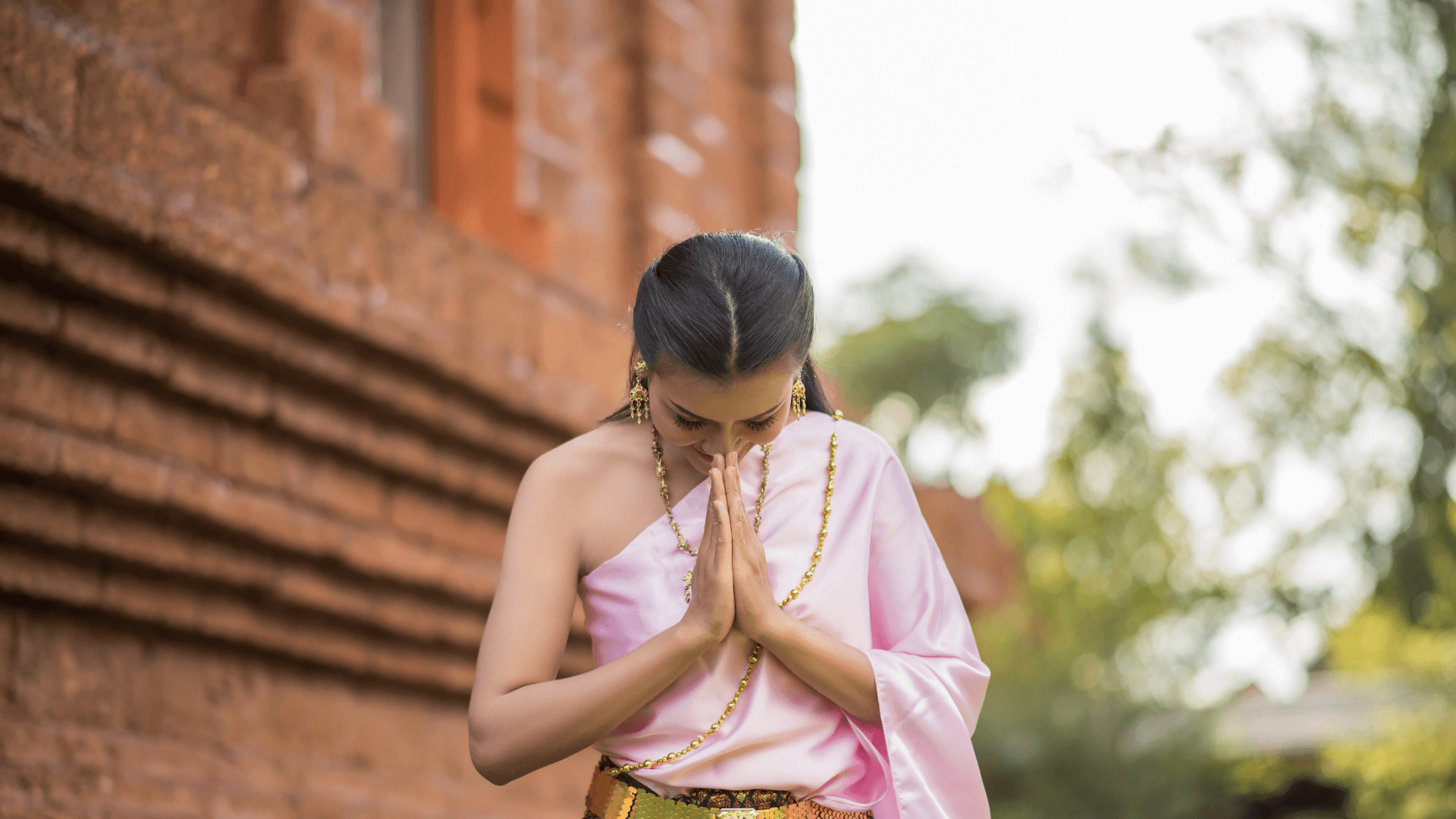
As Thai is a tonal language, it's essential to practice the correct pronunciation of its main word to express thanks - ขอบคุณ (khàawp-khun). To make it more polite, men add ครับ (khráp and women add ค่ะ (khâ).
It's customary to accompany words of appreciation with a smile and a "wai" - the Thai gesture - consisting of a slight bow of the head with the palms closed together. The gesture is commonly used for greetings, showing respect, expressing gratitude, or apologizing.
| Thai | English |
|---|---|
| ขอบคุณ (khawb-koon) | Thank you |
| ขอบคุณมาก (khawb-koon maak) | Thank you very much |
| ขอบคุณมากๆ (khawb-koon maak maak) | Thanks a lot |
| ขอบคุณจากใจ (khawb-koon jaak jai) | Thanks from the heart |
Turkish - Teşekkür Ederim
Expressing gratitude is valued in the Turkish culture. Choosing the right words may depend on your relationship with the person you're addressing, as well as on their status. As in many other languages, informal phrases and expressions are for friends; the formal ones are for older people, people in authority, or professional contexts. "Teşekkür ederim" is a more neutral phrase suitable to use in most cases.
When thanking someone on behalf of more people, use "teşekkür ederiz" (we thank you), emphasizing the appreciation of the entire group.
| Turkish | English |
|---|---|
| Teşekkür ederim (teh-shehk-yoor eh-deh-reem) | Thank you |
| Çok teşekkür ederim (chok teh-shehk-yoor eh-deh-reem) | Thank you very much |
| Çok sağ ol (chok sahw ol) | Thanks a lot |
| Teşekkürler (teh-shehk-yoor-lehr) | Thanks |
Ready to learn more?
Choose from 34 language courses or get them all with a one-time payment!

